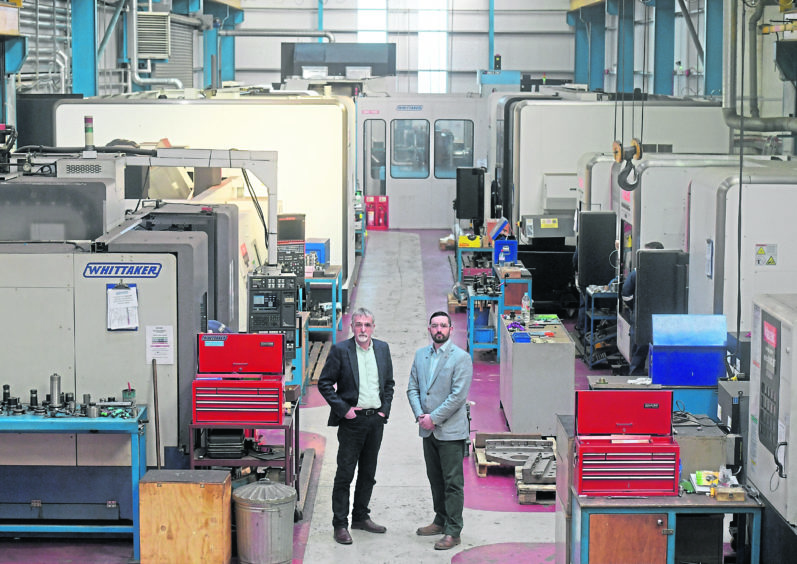
A skills shortage in the North Sea industry has been talked about for some time, and it is something the father and son team running Whittaker Engineering can see taking shape in the supply chain.
Managing director Ken and projects director Murray Whittaker are proud of the fact they largely avoided making staff redundant during the oil price crash, and now employ around 190 people between their bases in Aberdeenshire and Mexico.
The company has its main base near Stonehaven and has been operating for almost 36 years – you don’t survive that long without witnessing a few downturns.
As a result, they feel prepared for the projected glut of maintenance work for North Sea assets – with which the wider supply chain may struggle to keep up.
Murray said: “By mid-2020 for shutdown season, based on what we know now, there’ll be a rush of activity so we see 2020 as a very positive year.
“There was certainly a slowing of large-scale maintenance and construction activities. Now operators have got the budget again and they want to do maintenance and some of the fields do have long extension lives.”
Last September trade body Oil and Gas UK warned of a “squeeze” on the supply chain following redundancies amid the downturn.
Now it is expected hundreds of skilled workers will be needed to meet coming demand, giving rise to concerns over whether the supply chain can cope.
Ken Whittaker said everyone felt the recession and each company is now in the same boat.
He said: “Everybody has to do their bit. You can’t put all your eggs in one basket. You can’t put all your men offshore for one company when all your customers need you, so everybody is going to have to spread themselves a bit thin.
“There’s going to be at least 1,000 additional men required next year in the shutdown season.”
Murray added: “We know there is going to be more work coming. We’re worried that we won’t be able to grow to support those clients because there isn’t a pool of labour – but that applies to every single company like us.
“Because if your clients all come to us, the supply chain broadly, and say ‘right guys, I’ve got all this work’ and we’re all fighting for the same pool of small labour. We’d be in a tricky situation.”
In order to compete for that pool of labour, some firms are expected to be forced to raise their costs.
Whittaker “didn’t cut too dramatically” amid the downturn, remaining in the mid-tier for costs.
Murray said: “We didn’t cut our rates dramatically but we also froze our rates to keep in line with the rest of the market.
“I think too many companies cut too low and they will struggle to recover. We hedged our bets and stayed somewhere in the middle.
“So we didn’t want to go cheap as chips because there is a price for quality, you can’t ever under-sell it.”
One thing is for sure – there’s more work coming and, after a “low point” in 2016, the pair are positive in their outlook.
They remain anchored to the north-east and the UK oil and gas sector, but are “spreading their wings” with forays into international markets and sectors such as renewables.
Ken said: “It went flat this last year and pretty flat in January but since then work has started to ramp right up. We think it will probably last all year and next year.”
The firm has been branching out with trade in Ghana and Qatar, as well as work in the solar and marine sectors.
However the core of the business will remain North Sea oil and gas.
With assets frequently changing hands and new operators joining the market, Whittaker said it is flexible enough to adapt.
Murray said: “I think the next five years are actually going to be quite positive for the oil and gas sector, but it will be for a certain size of company. Operators are going to be smaller and different, as we’ve seen, so their supply chain is going to have to be smaller and nimbler to support those smaller and nimbler international oil companies.
“There will be as many oil fields operated by myriad smaller operators. Their operating models will be different. So the conventional supply chain will have to adapt to service them.”
Recommended for you
